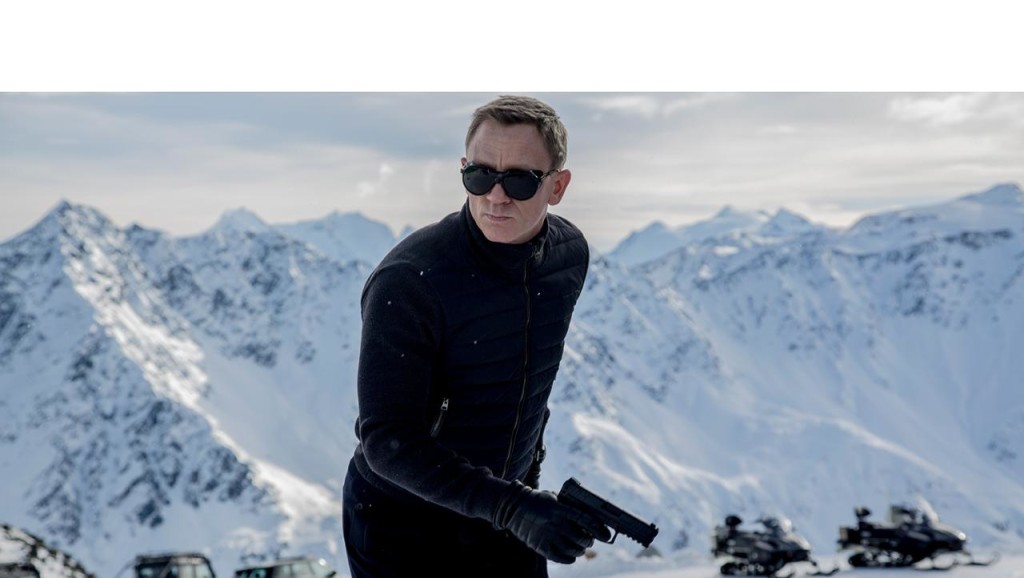A masked couple makes its way through the streets of Mexico City as jubilant masses of people prepare to celebrate the Day of the Dead. The two enter a nearby hotel, ride an elevator to the second floor and slip into a well-appointed suite to consummate their love.
But just as the woman starts to undress, she notices her companion, now wearing a perfectly tailored suit, climbing out the window onto the roof. “Where are you going?” the woman asks.
The world’s most famous secret agent turns to face her and briskly replies, “I won’t be long.” Little does she know that, in his absence, a trail of carnage will follow and set the stage for a calamitous turn of events with worldwide ramifications.
From this fast-paced opening scene, “Spectre” creates a story that successfully satisfies audiences with the usual quota of beautiful love interests, high-tech gadgets and exotic locations. But despite being highly entertaining, this is ultimately far from the best James Bond movie.
Based on the Ian Fleming character of the same name and directed by Academy Award–winning film director Sam Mendes, the film follows Bond (Daniel Craig) as he continues to recover from the events of 2012’s “Skyfall.” When the fallout from a rogue mission results in MI6 head M (Ralph Fiennes) removing him from field duty, Bond acts on posthumous orders from his former superior, Dame Judi Dench in an uncredited role, and goes on the run to uncover a mysterious organization only to find himself face-to-face with a ghost from his past.
“Spectre” is, at first blush, another thrilling chapter in a film franchise that has captivated the world for more than five decades. While the dizzying car chases and hair-raising fistfights work in synchronization to leave viewers in a perpetual state of suspense, however, the non-action sequences can be described in one word: repetitive.
The simplistic narrative fails to bring the suspense and intrigue one has grown to expect from a Bond film. The dialogue, though successful in delivering a combination of wit and humor, is largely limited to delivering exposition about the characters and their respective backstories. Even after all of the aforementioned criticisms, however, the central cast keeps the story going down to the harrowing final sequence.
Craig, in his fourth performance as Agent 007, enthralls audiences with his intimidating interpretation of Fleming’s beloved character. Armed with aloof sophistication and a cold yet calculating stare, Craig manages to prove his mettle despite the sluggish screenplay. His severe lack of humor and empathy, however, continues to be problematic, leaving viewers wondering if the agent with a license to kill is regressing to the misogynistic assassin his character started out as.
Two-time Academy Award–winning actor Christoph Waltz impresses as Franz Oberhauser, the shadowy mastermind claiming to be “the author of all [of Bond’s] pain,” but is hampered by a backstory that fails to provide any motive for his plans of global domination. Consequently, his connection to Bond and his earth-shattering revelation in the film’s final act leaves the audience wondering if the film they have just seen is an action-thriller or a soap opera.
Léa Seydoux charms with her performance as Madeleine Swann, a psychologist with a chilling connection to an old enemy of Bond’s, and would have made the perfect Bond girl if her relationship with him evolved more slowly than it does in the final product. Monica Bellucci, on the other hand, captivates viewers in a minor role as mob widow Lucia Sciarra, making history as the oldest Bond girl in the series. Though fleetingly featured, Bellucci’s purpose in the film is critical to granting Bond access to the heart of Spectre.
The members of the supporting cast, unfortunately, fail to impress. Fiennes is underutilized as M, reducing the complex character to a caricature. Naomie Harris and Ben Whishaw feel at ease in their respective roles as Eve Moneypenny and Q, but they are both left with little to do or say. Andrew Scott exudes evil in his role as Whitehall bureaucrat Max Denbigh but is largely limited to monologuing about global surveillance.
On a minor note, the film’s opening-credits sequence, which is set to Sam Smith’s “Writing’s on the Wall,” is perhaps the most disturbing in the Bond franchise. Images of Bond being slowly consumed by a mammoth octopus will elicit disgusted reactions, while flashes of characters from Craig’s previous three films, ranging from Eva Green’s Vesper Lynd to Javier Bardem’s Raoul Silva, subtly hint at the not-so-big bombshell dropped during the final act.
Although it lacks the magnetic pull that came with its predecessor, “Spectre” is bound to be another surefire success and, if the rumors are true, a fitting end to Craig’s reign as 007.




















